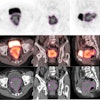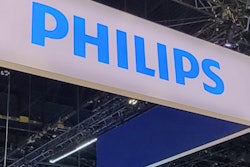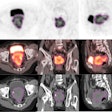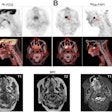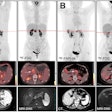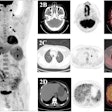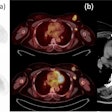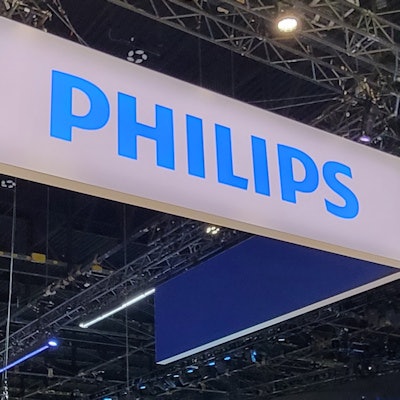
Philips has unveiled its MR for Calculating Attenuation (MRCAT) Head and Neck radiotherapy application and announced the compatibility of its MR Head and Neck Coil with a positioning mask system from MacroMedics.
The latest addition to Philips' MRCAT suite, MRCAT Head and Neck is designed to enable the use of MRI as the only or primary imaging modality for radiotherapy planning in the treatment of soft tissue tumors in the head and neck, according to the vendor. MRCAT Head and Neck makes use of artificial intelligence (AI) technology to convert MRI data into a CT-like density-based image. This enables access to both the soft-tissue contrast from conventional MRI and the density information from the virtual CT image.
"MR becomes a one-stop shop," said Dr. Ilya Gipp, chief medical officer for oncology solutions at Philips. "You no longer need to run a MR and then run a CT and then fuse the data together and perform the dose planning."
MRCAT Head and Neck has received U.S. Food and Drug Administration (FDA) 510(k) clearance and is available now. Other MRCAT applications support radiotherapy planning for treatment of soft tissue tumors in the brain, pelvis, and prostate.
In other news, Philips is also highlighting a new capability developed from its recent partnership with patient-positioning firm MacroMedics. The vendor's MR Head Neck Coil is now compatible with MacroMedics' Prominent double shell positioning system.
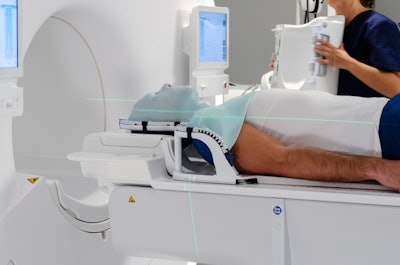 The combination of a Philips’ MR Head and Neck Coil with a mask positioning system from MacroMedics is designed to improve accuracy and patient comfort during MRI for radiotherapy planning. Image courtesy of Philips.
The combination of a Philips’ MR Head and Neck Coil with a mask positioning system from MacroMedics is designed to improve accuracy and patient comfort during MRI for radiotherapy planning. Image courtesy of Philips.With this combination, the patient's head no longer goes all the way to the flat couchtop.
"It's also enabling the simulator site to position the patient's head in a diagnostic head and neck coil, which naturally gives the best capabilities for high-quality imaging in terms of speed and in terms of contrast," Gipp told AuntMinnie.com. "Ultimately, [patients are] going to not only benefit from the accuracy of MR being used for simulation, but also the additional comfort."
Both offerings will be showcased at ASTRO 2022 in San Antonio. In addition, Philips also plans to emphasize developments from its collaboration with Elekta at the meeting. The two vendors are teaming up on initiatives for image-guided adaptive treatment and oncology informatics, Philips said.



